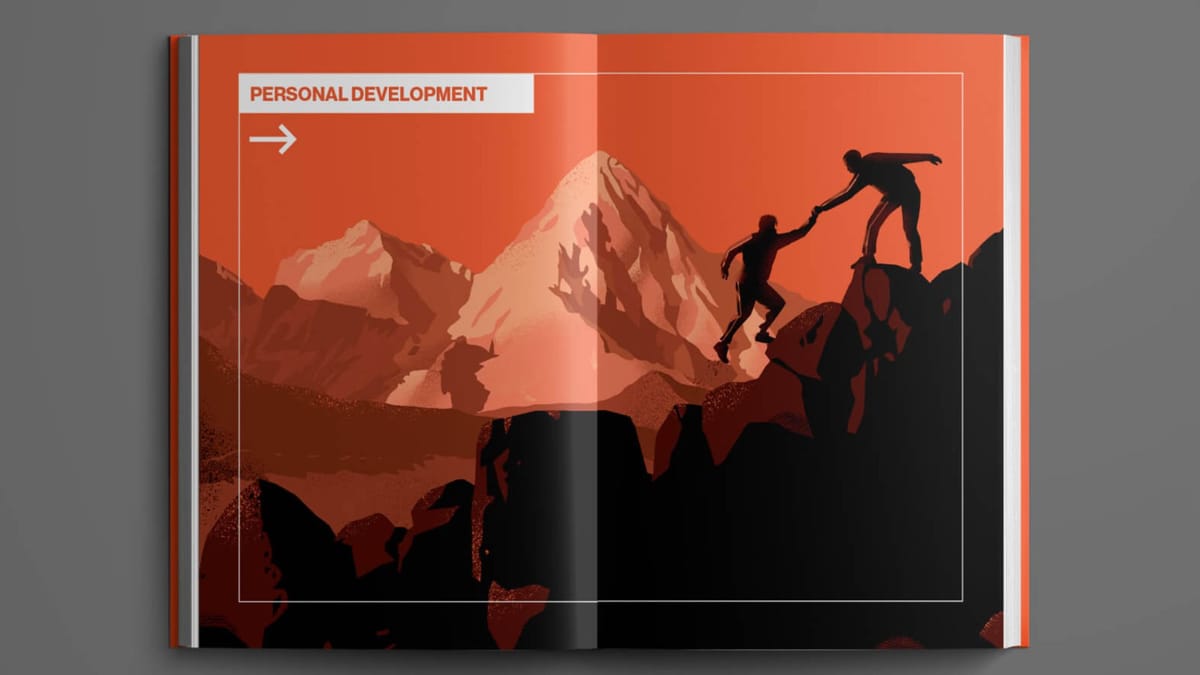In which I try, and fail, to be evil
Deathmatch Island is the Survivor meets Battle Royale TTRPG of my dreams

The game begins with the gentle rock of a ship, the sound of water lapping against the hull, and the smell of salt in the air. In a haze, Contestant #73 opens her eyes. Her face is smeared with old makeup, her outfit replaced with a tacky red jumpsuit, and her mind filled with half memories of a life that must have happened before waking up on this boat. Beside her, all adorned in the same jumpsuit, are three other people: a quiet, mousy young woman; a scrawny man with slicked back hair; and a behemoth of a red-blooded American with a profound sadness in his eyes. As we try to piece together who we are and what exactly is happening to us, the four discover an envelope. Inside is a letter explaining that they have been selected to participate in Deathmatch Island, and the prize for winning is “fame, freedom, and unlimited wealth.”
Phase One of the game begins on the island, where we are to scope supplies, make alliances, and “eliminate threats”. Then, the battle royale begins. So long as they survive—and do not [REDACTED]—they will earn the “ultimate reward”. The four begin to speculate about what exactly Deathmatch Island is, from a Squid Games-like reality show, to a corporate conspiracy, to the scrawny man wondering if this island is a trial to prove himself, created by his father. They have no answers, and none are coming any time soon.
At its base pitch, Old Dog Games and Evil Hat Productions’ Deathmatch Island is Survivor meets Battle Royale (or Hunger Games, Maze Runner, insert your dystopian coliseum of choice here). Character skills are pulled straight from the Survivor jargon—Social Game, Challenge Beast—with a few lethal additions like Deathmatch. I’ve only recently come to appreciate the sheer complexity of Survivor which, much like actual play, is the story of a game being played. Every player is navigating layers of physical, social, and emotional games; they must choose how they are going to win challenges, avoid elimination, and strategically manipulate the people around them—all while knowing they are being watched by a viewing audience. Deathmatch Island mechanizes this by tracking experience points through follower count. The better you are at playing the game (regardless of how you do it), the more weight your name carries.

In my real life, I tend to operate by a rigid internal code of ethics, one that often carries over into my roleplay. I always want to fight against the oppressive system, build connections with other people, offer forgiveness and compassion where there is none to be found, and try to make all worlds, even fictional ones, better than I found them. “Aren’t you tired of being nice,” whispered a voice in my head the moment I was invited to this game. “Don’t you just wanna go apeshit?” The voice, I imagine, takes the form of Survivor’s most morally repugnant contestant, Johnny Fairplay, a manipulative grifter who, among many things, lied to the other players that his grandmother had died so they wouldn’t vote him off the island. In a one-shot game of social maneuvering and murder, I wanted to see how far I would let myself go (with the consent and approval of the other players before and during the session.) I would never want to play Deathmatch Island in reality, but as a tabletop RPG, it was one of the richest narrative experiences I’ve ever had at the table—explicitly because I chose to start the game as a Bad Person.
Because Deathmatch Island begins with amnesiac characters, the only knowledge you have once the game begins is a randomly generated character profession and their underlying motivation. For Contestant #73, I pulled a Radio Host with Bitterness as her motivation. My mind immediately went to a failed podcaster, and from there it was a short leap to a Trixie and Katya-knockoff drag queen. While I don’t consider myself a bitter person by disposition, I recognize a cynical bitterness in a lot of drag queens, sometimes played for laughs and sometimes all too real. It’s an understandable reaction for people who’ve been simultaneously demonized and used for liberal capitalist ally points, so that’s what I leaned into. The world’s out to get me, so the only person I can rely on is myself. No one owes me anything, and I owe them nothing in return. While I’m normally terrible with names, this bitter queen’s stage name came instantly: Petty Dreadful.





